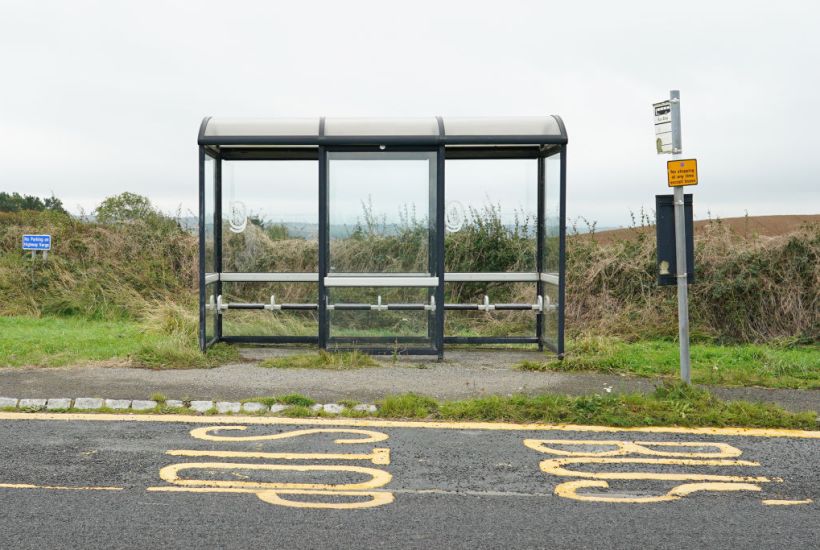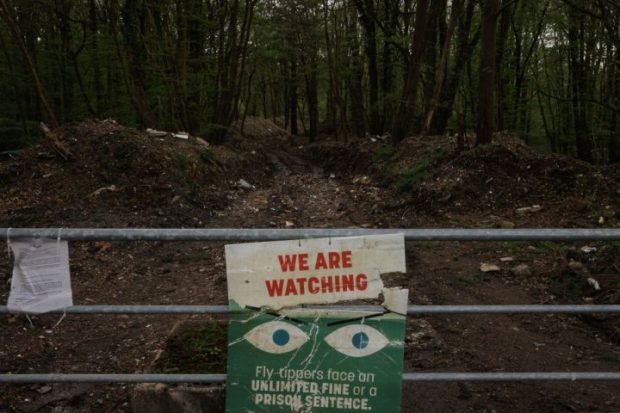The disappearance of rural bus routes is one of the small tragedies of our time. It isn’t, alas, a very glamorous tragedy. It affects older people, poorer people, people who live in unfashionable parts of the country. You seldom see Twitter storms about rural bus routes. You don’t see footballers campaigning on the issue with moist eye, bent knee and clenched fist. Those awkward one-deck buses, trundling from village to village, debouching the odd person here and there at an unloved bus stop on a drizzly rural B-road: they will never occasion so plangently romantic an elegy as Flanders and Swann’s ‘The Slow Train’, which lamented in the 1960s the equivalent decline of the railways.
But small tragedy it is. Rural bus routes are part of the network of capillaries that keep small communities alive, that bring just enough custom to keep the village pub or the local post office going. They help people who don’t have access to cars to get to work, to visit the doctor or – a good never measurable on official statistics – to visit one another. They have, one by one, been closed down or cut back in the name of efficiency. They are, local government has tended to conclude, just too expensive and serve too few people to sustain.
But here’s the cheering bit. The Department for Transport has had a quiet, clever, modestly priced and – it seems to me – entirely good idea for how to replace them. All credit to Boris Johnson’s 2021 National Bus Strategy. Local councils – backed by £50 million of government money – are launching what they call ‘Uber for the countryside’: a network of minibuses that can be hailed with a smartphone app and will pick passengers up and drop them exactly where they want to go, diverting here and there to pick up another passenger if the app’s algorithm decides it can be done without intolerable disruption of the original journey.
If this service will drop its users door to door at no significantly greater cost than a bus ticket, that is a small miracle
It’s not perfect, of course. Not everyone who’d benefit from this has a smartphone and the savvy to use an app. But it’s surely a bus ride in the right direction. If, as claimed, this will drop its users door to door at no significantly greater cost than a bus ticket, that is a small miracle – not least for those who don’t live near a bus stop or have physical disabilities that make walking to one a challenge. And no doubt, for those who mind about these things, it’s better for the environment than vast, expensive, empty charabancs on their fixed routes. Imagine if this could, managed sensibly, bring a whole new lease of life to rural businesses and countryside existences.
The problem with state funded projects, as people on the right correctly complain, is that they tend to be one-size fits all. Central government finds it hard to be nimble, to localise, to distribute resources efficiently, and so on. State spending is that 40-passenger bus chugging down a country lane four times a day in each direction with a solitary cider-drinking teenager aboard. As Milton Friedman argued, if you’re spending other people’s money on other people (which is most public spending) you don’t much care how much of it you spend and you don’t much care what you get in return.
The solution that’s usually offered from that quarter is that you wheel in private companies to help, in the hopes that competition and free enterprise will produce efficiencies and innovations unavailable to the dead hand of the state. Attractive to governments, who have someone else to blame; attractive to the companies involved, who are hard to remove once in place no matter how terribly they perform or how deeply they gouge the public purse on prices.
The problem with this, as people on the left just as correctly complain, is that in practice the vaunted efficiencies of the market tend to be directed not towards getting the best value, but towards extracting as much profit as possible. This type of spending perhaps falls into the category Friedman identified as ‘spending other people’s money on yourself’. That’s how you end up paying more to keep a child in a care home than to send it to Eton, or with agency nurses costing more than lawyers, or with Baroness Mone getting even richer.
But here, in ‘Uber for the countryside’, is the best of both worlds. Here is a stone-cold instance of a public service learning from the private sector and the lesson, for once, not being ‘somebody needs to be making a profit out of this’. That is very heartening: not the sort of ‘efficiencies’ whose vague invocation presages a swathe of lay-offs and corner-cuttings, but actual efficiency of a measurable, visible sort.
There are all sorts of unattractive things about Uber, I know. It has been criticised for turning the screw on its drivers in all sorts of ways, and for a business model that seems geared to the grand tradition of establishing a near-monopoly by predatory pricing before cranking up the fees at its leisure. It flourished under a boorish tech-bro leadership. But those aren’t the qualities that are being imitated here.
The original brilliance of Uber, to which complaints about its business model are quite irrelevant, was the way that it used technology to allocate resources with never-before-seen efficiency. Instead of having to have a vast fleet of black cabs circulating a metropolis so that, on average, you’d be able to hail one tolerably soon wherever you were standing, you could get the same outcome with a far smaller fleet. Uber was able to send the taxi three streets away right to the kerbside. And it could do clever things like knocking a bit off the cost if you picked up another passenger on the way. It was, in programming terms, an elegant computational solution to a problem that had previously only been susceptible to brute-force solutions.
Whoever thought that this might be applied to rural transport for the public good, and studiously did the sums, and lent their labour to an area of policy that won’t spark a hashtag campaign but might save money and vastly improve lives…well. They may not earn a Flanders and Swann song, but I hope they get five-star reviews on the app.
The post Why ‘Uber for the countryside’ is a great idea appeared first on The Spectator.
Got something to add? Join the discussion and comment below.
Get 10 issues for just $10
Subscribe to The Spectator Australia today for the next 10 magazine issues, plus full online access, for just $10.




















Comments
Don't miss out
Join the conversation with other Spectator Australia readers. Subscribe to leave a comment.
SUBSCRIBEAlready a subscriber? Log in